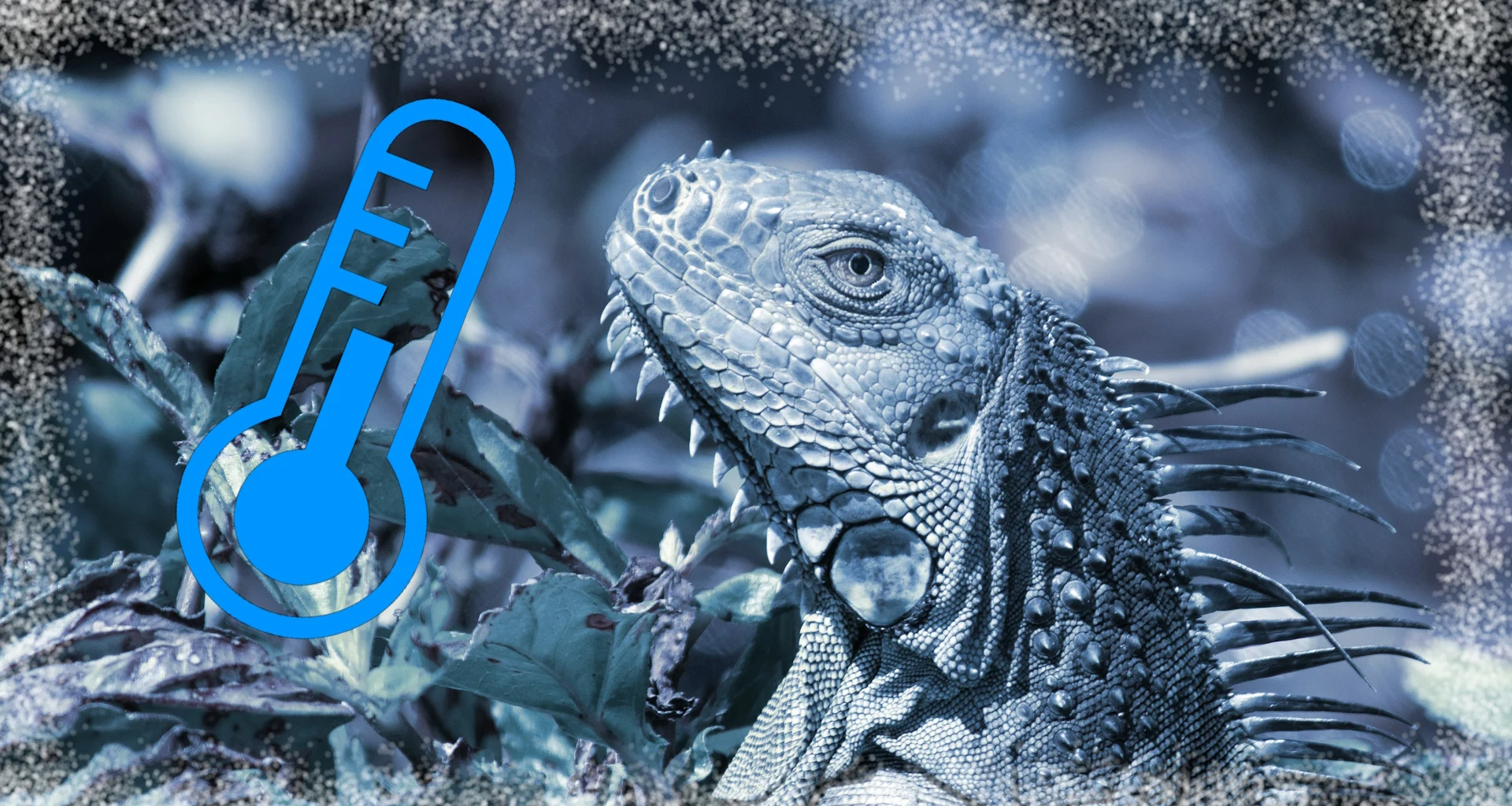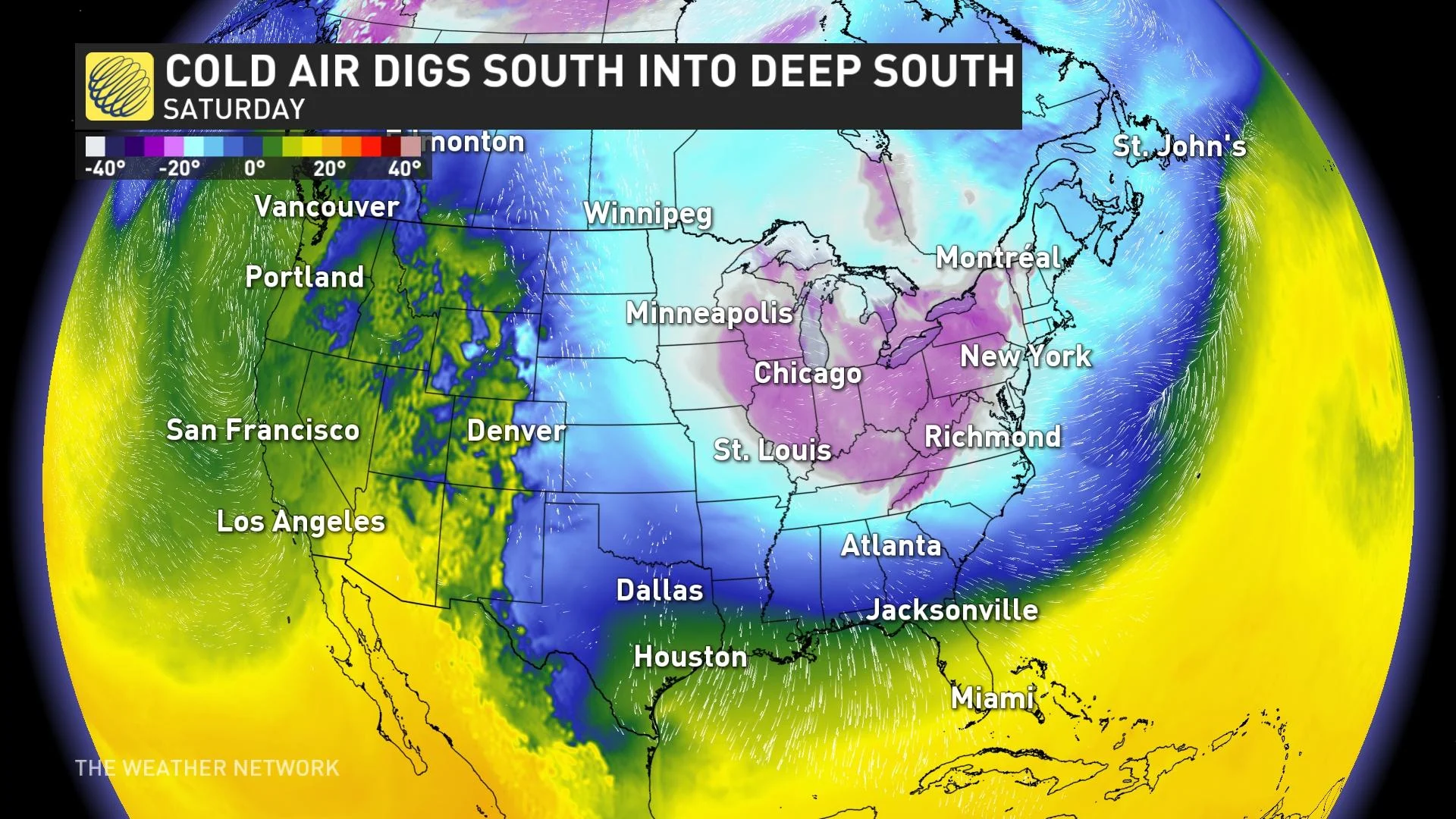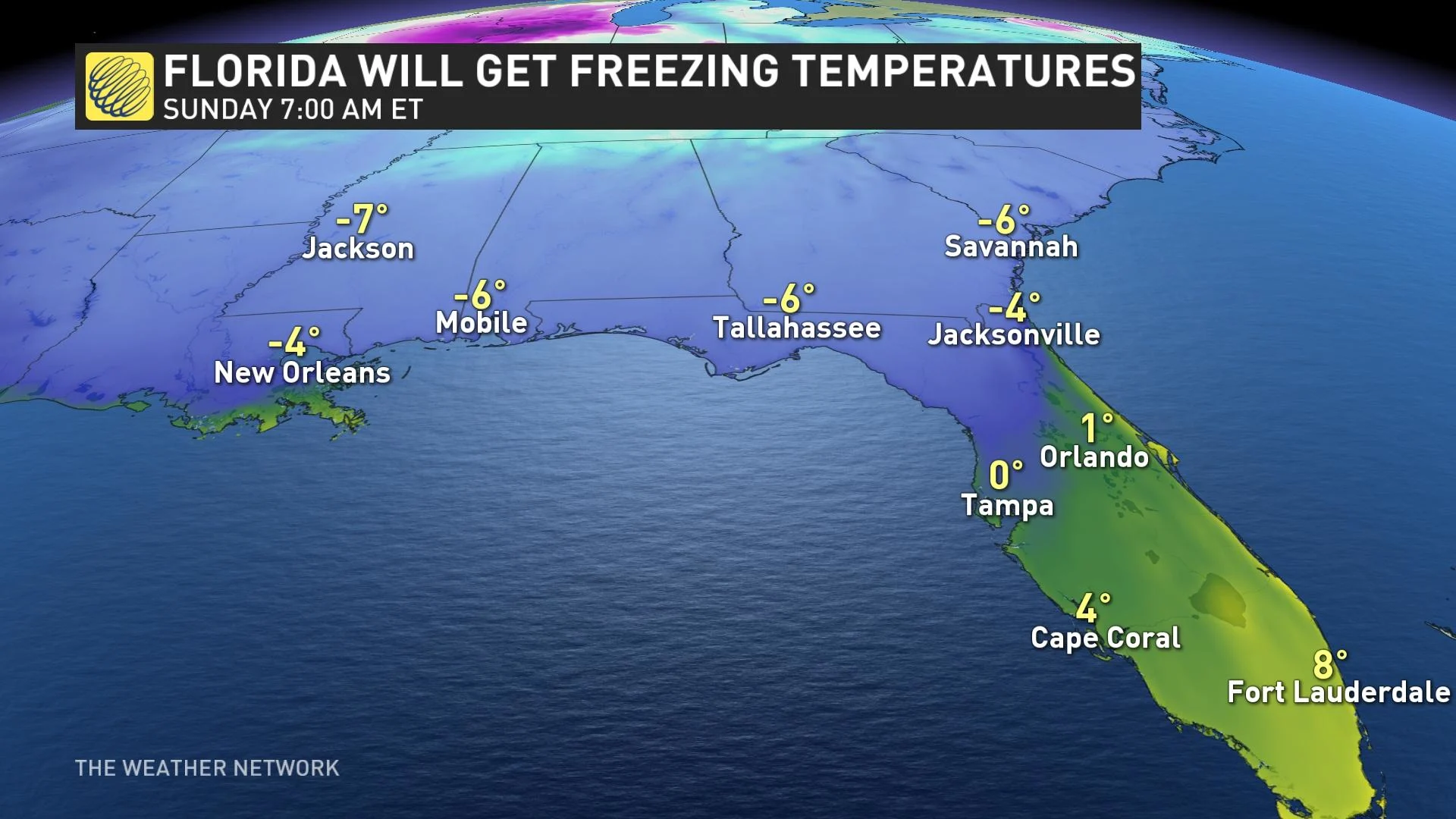
Heads up! Falling iguanas possible in Florida as cold air hits
That iguana-shaped cloud in the skies over Florida this weekend might be an actual iguana falling to the ground thanks to a winter chill descending on the state
Canada plans to share its ample Arctic air with Florida this weekend as temperatures fall as fast as an iguana.
How fast does an iguana fall, though?
A few unlucky folks across the Sunshine State might find out first-hand as the looming cold weather threatens to ‘stun’ these tropical reptiles this weekend, leaving the slumbering creatures at risk of actually falling out of trees—no small matter when they can weigh more than 7 kg.
WINTER FORECAST: Snowbirds face a stormy winter as El Niño influences U.S. patterns

The cold snap that’s gripped much of North America over the past week didn’t spare Florida from its mighty clutch. Observers reported light snow and freezing rain at the Pensacola Airport on January 16 as the leading edge of Arctic air plunged into the region.
Another shove of frigid temperatures will lumber into the southeastern U.S. this weekend, forcing the freezing line to dip deep into northern Florida.
Falling iguanas aren’t dead, just ‘stunned’ by the cold
While we have the luxury of wearing jackets and switching on the heat, our cold-blooded companions only have their evolutionary instincts to brave the elements.
'Cold-blooded' creatures like iguanas have to rely on the environment to regulate their body temperature and keep their metabolism fully functioning. If temperatures fall too much, their metabolism slows down in order to preserve critical functions like breathing and pumping blood. This essentially stuns the iguana, making them look as if they’re frozen in place.
MUST SEE: What is the polar vortex? How it’s responsible for dangerous cold
Since iguanas sleep in trees at night, morning temperatures chilly enough to send an iguana into suspended animation may cause them to lose their grip on a branch and succumb to gravity.
Some of these invasive iguanas weigh more than 7 kg at full size, which could make the stunned fauna a legitimate safety hazard for anyone beneath a tree on a chilly Florida morning.
These effects are only temporary. The iguanas are rarely injured during the ordeal, and they’ll return to their regularly scheduled activities once temperatures rise and the morning sun warms them up.
Single-digit lows likely deep into South Florida
There’s a solid risk for falling iguanas across Florida this weekend as temperatures dip well below seasonal for this time of year.
The famed theme parks around Orlando may see temperatures hover around freezing by Sunday morning, and morning lows in the lower single digits are likely through Tampa Bay and even as far south as the communities of Fort Myers and Naples.

Folks around Miami, Fort Lauderdale, and West Palm Beach will even need a light jacket by Sunday, with morning temperatures away from the ocean sinking into the single digits and highs struggling to reach 20°C.
Some good news for snowbirds and iguanas alike is that this cooldown is only temporary. A large ridge that’ll bring warmer temperatures to most of the continent next week will send Florida’s readings back to their enviable heights. Daytime highs across the state will climb back to the mid- to upper-20s by the second half of next week.
Until those warmer conditions arrive, though, folks across Florida will have to remain on the lookout for falling reptiles.
Header image created using imagery from Unsplash.











